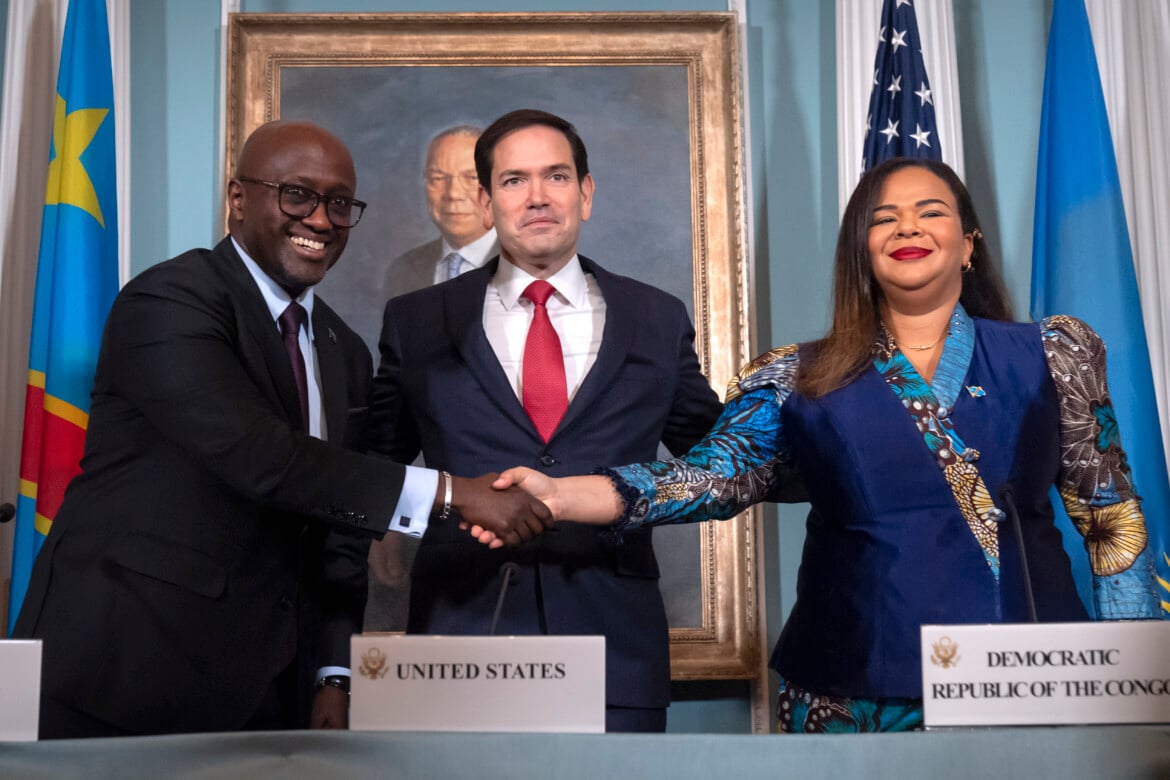Commentary
The US-brokered Congolese peace is heavily mineral, scarcely humanitarian
The project is to pacify one of the world’s most tormented regions with a magician’s touch, to turn the problem into a solution by pivoting on the proverbial riches that for a century Congo has offered to the criminal appetites of world powers and their partnered multinationals.

Except for Congolese civil society, which has scant reason to trust any of the players involved, the agreement signed in Washington to end the undeclared war between Rwanda and the Democratic Republic of Congo seems to have made everyone else happy.
And not only happy, but feeling like they’ve won. With only minor tweaks to the formula tested in the truce the White House imposed on Iran and Israel, a formula it now hopes to replicate in Gaza and Ukraine, and without dwelling too much on the issue of who is the aggressor and who is the victim. The UN, the European Union and the African Union are applauding in unison; Rwanda’s government expects the Hutu militias operating on Congolese soil to be disarmed; Congo’s government is counting that Rwanda’s army will pull back behind its own borders and hopes the U.S. administration will be ready to sanction any fresh incursions.
Meanwhile, as il manifesto headlined last Saturday, “Trump is gloating over minerals,” for it is clear that the exponentially growing demand for minerals and rare earths is what is truly at play. Soon those raw materials will be able to flow from the extraction zones – the heart of African darkness par excellence – to Atlantic ports, thanks to the strategic Lobito Corridor, 1,600 kilometers of infrastructure financed with more than four billion dollars by the Biden administration, enthusiastically backed by the European Union and with Italy’s Mattei Plan somewhere in the background.
The project is to pacify one of the world’s most tormented regions with a magician’s touch, to turn the problem into a solution by pivoting on the proverbial riches that for a century Congo has offered to the criminal appetites of world powers and their partnered multinationals.
Rwanda will pocket a handsome slice as well, cleansed of every taint of illegality. A small, heavily armed country, with a genocide in its recent past and flexing muscular ambitions, it has become Israel’s best African ally. Paul Kagame has steered this “democratorship” for a quarter-century with, one might say, a silicon fist, given the scale and sophistication of its defense tech, cybersecurity and surveillance of every form of opposition at home and abroad – all enabled by its friendship with Israel. Nor has anyone forgotten Rwanda’s readiness to accept, for a fee, unwanted African migrants that Israel chose to ship to a third country, a model the U.K. tried to mimic and that Meloni’s Italy has now applied in Albania.
The conduct of Rwanda and its M23 militia in the Kivu provinces has piled on yet more bloodshed, rape and mass displacement. Yet the ordeal of these local communities did not begin with the more than three million deaths recorded during the First and Second Congo Wars of the 1990s.
With Donald Trump, what seems to be resurfacing is a trace of that “odious pretext of philanthropy” Arthur Conan Doyle observed in King Leopold II, who at the end of the nineteenth century turned Congo into his private garden of horrors without ever setting foot there. It was colonial Belgium’s cash machine when the most prized commodity on world markets was rubber and its African dominion supplied it in industrial quantities at zero cost, as the lives of those forced to harvest the precious latex were valued at precisely zero.
Belgian colonialism would have a coda just as ruthless, co-produced with the CIA at the dawn of African independence, through the regime change that installed Mobutu and sent Lumumba to the pantheon of anti-colonial heroes, murdered before they could hamper the hegemonic design in motion. The bone of contention was, as always, strategic resources. In that case, it was control over the uranium lying beneath Congolese soil – without it, for instance, the atomic bombs dropped on Hiroshima and Nagasaki could not have been built. Thus Congo became a preferred arena of the Cold War, which here reached rather high temperatures. And in the old role of the USSR we now find China, which long ago activated its soft power with the same objective: minerals.
Uranium, diamonds, oil, copper and then cobalt, germanium, rare earths, the coltan that ought to make us recall Congo every time we touch a smartphone screen – the open veins of Africa, to borrow Galeano’s phrase. From Franklin Roosevelt onward, the United States has profited off them. It is hard to believe the supreme dealmaker, Trump, nonchalantly moving from one end of the global chessboard to the other, will now distinguish himself by philanthropic impulses. But perhaps, deep down, he likes to imagine so – just like Leopold.
Originally published at https://ilmanifesto.it/per-il-congo-un-accordo-di-pace-molto-minerario-e-poco-umanitario on 2025-06-29
